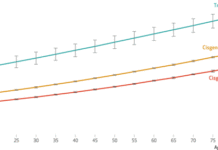
Since the current global monkeypox outbreak emerged in Europe, the majority of cases have been found in men who have sex with men (MSM), and in particular those who have multiple and often anonymous partners – met at venues such as saunas, cruising
bars and sex clubs, or through dating apps and sex parties.
With the outbreak continuing in Europe, providing factual information on where the virus is spreading, without judgement, is critical to helping individuals take action to lower their risk of exposure. While it is important to avoid any stigma and discrimination
of the communities affected, the most affected groups – currently MSM – need to be involved in solutions for stopping its further spread, and not excluded.
With the outbreak being declared a Public Health Emergency of International Concern at the end of July, the important thing right now is to focus on bringing this outbreak to an end, as Dr Hans Henri P. Kluge, WHO Regional Director for Europe highlighted
in his 26 July statement: “the responsibility for stopping this outbreak is necessarily a joint responsibility, shared among health institutions and authorities, governments, affected communities and individuals themselves”.
With this in mind, we spoke to 5 men who interact sexually with other men through a range of venues or platforms to hear their thoughts about the monkeypox outbreak and how it has impacted their lives.
All had a good awareness of monkeypox and the symptoms to look out for – such as rashes and blister-like lesions – and knew that in this outbreak it has been mostly caught as a result of skin-to-skin contact during sex.
John, 52 from London, United Kingdom, explains how he felt when he learned more about the current outbreak: “Initially, I wasn’t too worried, because I thought that you had to have travelled to one of the countries where the disease is endemic.
But then as I heard more, I realized this wasn’t the case – it was spreading between people without any history of travel to Africa. That really made me sit up and take notice, particularly as in Europe the cases were mainly being found
among gay men and it was being spread through having sex”.
Changing behaviours as a result of rising cases
The men interviewed expressed how the growing number of cases had prompted them to seriously reconsider their sexual behaviour – at least while monkeypox was in widespread circulation.
Alessandro, 34, from the Milan area of Italy, was frank about his usual sexual habits: “I used to go to a cruising bar or sauna almost every weekend and would chat to people on Grindr [a dating app] multiple times a day. With the monkeypox outbreak,
I haven’t had sex for a month now and have stopped logging on to the app”.
“Right now, I think all MSM who have multiple partners need to be more responsible to help significantly reduce case numbers. Everyone should rethink their sexual habits and do what they can to protect themselves and others.”
Ryan, 49 lives in Birmingham, United Kingdom and has also decided to refrain from sex while the virus is so prevalent. “At first, I didn’t think the outbreak would have much impact on me, but as case numbers have risen it’s become more
scary and real, and made me reassess what I do. I used to use sex venues regularly, but on my last visit noticed a decrease in numbers attending. For the time being, I’ve decided the best thing to do is to just stop going.”
Giacomo, 31 from Brescia, Italy, expresses a similar sentiment, but for very personal reasons: “Two of my friends have had monkeypox, so I’ve seen it first-hand. I live at home and would hate for my parents to discover I had it too. So, for
now, I’ve stopped going to sex clubs and having sex altogether”.
Being pragmatic that these are temporary measures
However, given that this international public health emergency has come so soon after the restrictions and closure of venues at the height of the COVID-19 pandemic, Giacomo – like many of the men we spoke to – is also honest about how long
he feels he can keep this up for: “After two years of social restriction due to COVID-19, we all want to return to more of the life we had before, and having the freedom to be able to visit sex venues when we want is an important part of that
for me”.
WHO/Europe is not advocating for permanent abstinence from sex, but does recommend that individuals from the MSM community seriously consider limiting their sexual partners and interactions at this time, as a means to avoid catching monkeypox and to limit
its effect on individuals and the wider community.
Venues playing their part in combatting the outbreak
WHO/Europe does not recommend closing down sex-on-premises venues. These venues should be kept open and can themselves be part of the solution to controlling the outbreak. They can help disseminate messages to those most at risk, to inform them about
risks, prevention strategies and available health services for testing. Indeed, many are already playing this vital role.
“I’ve seen information about monkeypox in many of the venues I’ve visited – it’s good and it’s the right thing to do,” says John. “Hopefully, it will make people think twice before they head out, particularly
if they have unexplained lesions or a rash.”
Getting the monkeypox vaccine
The 5 men we spoke to were keen to get vaccinated to be better protected against the disease. However, while a new vaccine has been approved for the prevention of monkeypox, and traditional smallpox vaccine is believed to provide a high degree of protection,
these vaccines are still not widely available. This means that many countries are not currently offering vaccines to MSM and other high-risk groups.
Ryan was lucky though: “I’m planning on getting the vaccine this week,” he told us. “Although I’m not visiting saunas at the moment, I suspect that once I’ve had the vaccine I will return again.”
Although Alesandro is from Italy, he managed to get the monkeypox vaccine while on holiday in France: “I am gay and HIV positive and personally know 10 people who have had monkeypox – some of them with very bad pain in their anus and urethra.
That made me worry a lot about the disease. I managed to get my Imvanex shot [a vaccine approved by the European Medicines Agency for use against monkeypox] at the beginning of August. For me, it is very important because I want to have sex again
and to reduce any symptoms of the disease if I catch it. I am still going to wait before I have new sexual encounters though, because I know my body needs to build up the antibodies to properly build up its defences”.
Vaccination is an important component of the response to monkeypox; however, it is a not a silver bullet. Global supply of available vaccine is currently limited and through community engagement, countries need to devise effective mechanisms of providing
vaccination to target populations at highest risk, without generating stigma and discrimination. Also, while studies suggest that available vaccines are effective in preventing monkeypox infection, real-life effectiveness data are still emerging.
Fear of stigma against the MSM community
As the outbreak has continued to grow – in case numbers and geographical spread –many of those we surveyed were concerned there could be a backlash against the MSM community, with those catching the virus particularly stigmatized.
“This has echoes of the HIV/AIDS crisis in the 1980s and 1990s,” says John, “and I fear that there could be a stigmatization of MSM – even though this is a disease that anyone can potentially catch.”
“How do you explain to your employer, partner or family that you have monkeypox,” asks Ryan, “particularly if you’ve had close contact with any of them? It could ruin relationships and jeopardize people’s livelihoods. We
need to bring this out into the open and make it a disease not subject to blame and judgement.”
WHO/Europe’s message to those at highest risk of infection
To men who have sex with men and especially those with multiple sexual partners, WHO/Europe says:
- Get the facts – we know how the disease is spreading, and also what people can do to protect themselves.
- Consider limiting your sexual partners and interactions at this time. This may be a tough message, but exercising caution can safeguard you and your wider community.
- While vaccination may be available to some people with higher exposure risks, it is not a silver bullet, and you should consider taking steps to lower that risk even more, for the time being.
- If you have or think you have monkeypox, you may be infectious – so please do everything you can to prevent spreading the disease, including isolating if you can, and taking a break from sexual encounters and attending social events in person.
Ending this outbreak can happen, but only with the full involvement and engagement of those individuals and groups most affected. While the responsibility to act is a shared one, health authorities and governments must target resources and support to
where they will have most impact.
NOTE: The names of those we interviewed have been changed to protect their identities. We appreciate the openness of all the men who agreed to speak to us.








